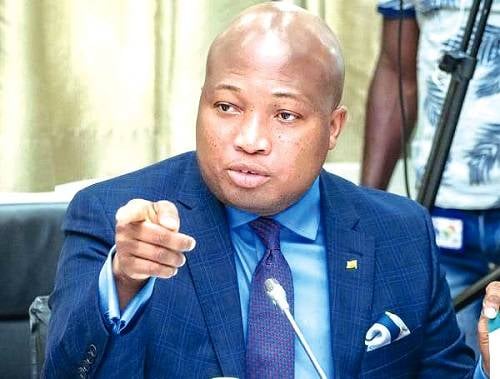The controversy surrounding the use of private jets by government officials, specifically Ghana’s Foreign Affairs Minister, Samuel Okudzeto Ablakwa, has ignited a heated debate within the political landscape. Kofi Ofosu Nkansah, former CEO of the National Entrepreneurship and Innovation Programme (NEIP), has publicly expressed his hope that Ablakwa and other members of the opposition National Democratic Congress (NDC) will acknowledge what he perceives as misguided criticism of the practice when they were in opposition. This call for reflection stems from Ablakwa’s previous stance, articulated during his time in opposition, where he vowed to resign if the government he became a part of resorted to using private jets. Now, facing mounting pressure to resign due to the government’s utilization of private aircraft, Ablakwa finds himself in a politically precarious position.
Nkansah’s appeal for introspection centers around the argument that the NDC’s prior condemnation of private jet usage was based on misinformation and a lack of understanding of the logistical complexities involved in international travel, particularly within Africa. He contends that the narrative propagated by the NDC, which painted a picture of extravagant spending and misplaced priorities, was fundamentally flawed. Instead, Nkansah argues, the use of private jets in certain instances was a practical necessity, especially when the presidential jet was unavailable. He emphasizes the importance of considering the logistical challenges faced by heads of state, particularly in Africa, where commercial flight options are often limited and inefficient.
The core of Nkansah’s argument rests on the comparison between the current administration’s use of private jets and the situation faced by former President John Mahama, whose brother owned a private jet. Nkansah posits that Mahama’s access to private air travel through his brother’s aircraft alleviated many of the logistical hurdles inherent in traversing the African continent. He challenges the NDC’s hypothetical expectation that President Akufo-Addo should have relied solely on commercial flights, highlighting the impracticality of such an approach. He paints a picture of the significant time and logistical complications that would arise from relying solely on commercial flights, which often necessitate multiple connections and extended travel times within Africa’s fragmented air travel network.
Nkansah underscores the potential disruptions to presidential duties and diplomatic efforts if the President were subjected to the constraints of commercial air travel within Africa. The time lost navigating multiple connecting flights, he argues, could be detrimental to the efficient execution of presidential responsibilities and the pursuit of crucial diplomatic engagements. He implies that the NDC’s previous criticisms failed to account for these practical considerations, focusing instead on a simplistic and arguably misleading narrative of extravagance. By raising the example of former President Mahama’s access to private air travel, Nkansah seeks to highlight the hypocrisy of the NDC’s current stance, given their implicit acceptance of the practice during Mahama’s tenure.
Furthermore, Nkansah challenges the NDC’s characterization of private jet usage as wasteful expenditure by emphasizing the vital role these flights played in facilitating official government business. He reframes the narrative by portraying these trips not as frivolous indulgences but as essential undertakings necessary for the effective execution of presidential duties. He argues that the NDC’s focus on the mode of transportation obscured the underlying purpose of these journeys, which he asserts were crucial for advancing national interests. This reframing serves to shift the debate away from the optics of private jet travel and towards the substantive outcomes of the trips themselves.
Ultimately, Nkansah’s intervention in the debate aims to foster a more nuanced understanding of the complexities surrounding private jet usage by government officials. He calls for a move away from simplistic and politicized narratives, urging instead for a pragmatic assessment of the logistical realities and practical considerations that inform such decisions. He suggests that the NDC’s previous criticisms were rooted in a mischaracterization of the situation and a failure to appreciate the practical challenges of international travel, particularly within the African context. By highlighting the potential disruptions and inefficiencies associated with relying solely on commercial flights, Nkansah seeks to justify the government’s use of private jets in certain circumstances and encourage a more informed and balanced discussion on the issue.


